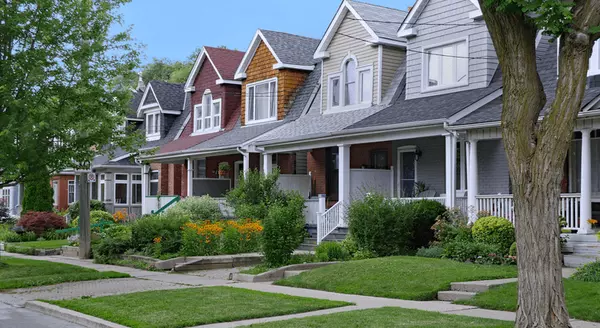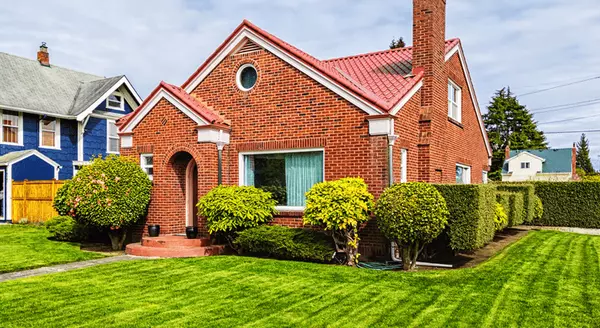
Is Your House Priced Too High?
Every seller wants to get their house sold quickly, for as much money as they can, with as few headaches as possible. And chances are, you’re no different. But did you know one of the biggest things that could jeopardize your success is the asking price for your home? Pricing your house correctly is one of the most crucial steps in the selling process. So, how do you know if you’re missing the mark? Here are four signs your high asking price might be turning potential buyers away—and why leaning on your real estate agent is the best way to course correct. 1. You’re Not Getting Many Showings or Offers One of the most obvious signs your house may be overpriced is a lack of showings. If it's been on the market for several weeks and only a few buyers have come to see it—or worse, you haven’t gotten any offers—it could be a clear indication the price isn’t matching up with what buyers expect. Because buyers who have been looking for a while can easily spot (and write off) a home that seems overpriced. Your real estate agent will coach you through this, so lean on their experience for what you may want to try to bring more buyers in, including considering a price cut. 2. Buyers Have Consistent Negative Feedback after Showings And if after the showings you do have, comments from the potential buyers aren’t great, you may need to course correct. Feedback from showings is an important part of understanding how buyers see your house. If they consistently say it's overpriced compared to other homes they’ve seen, it’s time to reconsider your pricing strategy. Your agent will gather and analyze this feedback for you, so you can look at how your house stacks up in the market. They can also suggest specific improvements or staging changes to better justify your asking price, or recommend one that aligns with today’s buyer expectations. As the National Association of Realtors (NAR) explains: “Based on all the data gathered, agents may make adjustments to the initial price recommendation. This could involve adjusting for market conditions, property uniqueness, or other factors that may impact the property's value.” 3. It’s Been on the Market for Too Long And that lack of interest is ultimately going to lead to it sitting on the market without any serious bites. The longer it lingers, the more likely it is to raise red flags for buyers, who may wonder if something is wrong with it. Especially in today’s market with growing inventory, a long listing period means your house is stale – and that makes it even harder to sell. Your real estate agent will be able to give you perspective on how quickly other homes in your area are selling and walk you through what’s working for other sellers. That way you can decide together if there’s something you want to do differently. As a Bankrate article says: “Check with your agent about the average number of days homes spend on the market in your area. If your listing has been up significantly longer than average, that may be a sign to reduce the price.” 4. Your Neighbor’s House Sold Without an Issue And here’s the last one to watch out for. If similar homes in your area are selling faster than yours, it’s a clear sign that something is off. This could be due to things like a lack of upgrades, outdated features, or a less desirable location. Or, it may be priced too high. Your agent will keep you up to date on your competition and what changes, if any, you need to make your home more competitive. They’ll offer advice on small updates that could increase your home’s appeal or how to adjust your strategy to reflect the reality of the market today. Bottom Line Pricing a home correctly is both an art and a science. It requires a deep understanding of the market and buyer psychology. And when the price isn’t drawing in buyers, there’s no better resource than your agent on what you may want to do next. Call Rajeev Vashist at (703)927-0606. Buying a Home Selling a Home

Falling Mortgage Rates Are Bringing Buyers Back
If you’ve been hesitant to list your house because you’re worried no one’s buying, here’s your sign it may be time to talk with an agent. After months of high rates keeping buyers on the sidelines, things are starting to shift. Rates are already coming down due to a number of economic factors. And yesterday the Federal Reserve cut the Federal Funds Rate for the first time since they began raising that rate in March 2022. And while they don’t control mortgage rates, this sets the stage for mortgage rates to fall even further than they already have – especially since more cuts from the Fed are expected into next year. And lower mortgage rates are bringing more buyers back into the market. Lisa Sturtevant, Chief Economist at Bright MLS, says: “A drop in the cost of borrowing will help fuel more homebuyer demand . . . Falling rates will also bring more sellers into the market.” The best part? You can take advantage of that renewed buyer interest. As Rates Fall, Buyer Activity Goes Up The graph below illustrates the relationship between falling mortgage rates and rising buyer activity. The orange line represents the average 30-year fixed mortgage rate, while the blue line shows the Mortgage Bankers Association (MBA) Mortgage Application Index, which tracks the number of mortgage applications. As you can see, as mortgage rates (orange) come down, the Mortgage Application Index (blue) rises, showing more people start to re-engage in the process (see graph below): What This Means for You According to the National Association of Realtors (NAR), home sales increased in July, which was a welcome shift after four straight months of declines. If you're a homeowner thinking about selling, this uptick in buyer activity works in your favor. More buyers means more competition, which can lead to higher offers and shorter time on the market for your house. And, according to Edward Seiler, AVP of Housing Economics at the Mortgage Bankers Association (MBA), this trend is expected to continue: “MBA is expecting that slower home-price appreciation, coupled with lower rates, will ease affordability constraints and lead to increased activity in the housing market.” All in all, the market is becoming more accessible to a wider range of buyers, which could result in even more people looking to purchase a house like yours. With more buyers entering the market, now’s the time to start getting your house ready to sell. Bottom Line The recent decline in mortgage rates is already driving more buyers into the market, and experts project this trend will continue. Let’s work together to take advantage of this increased buyer demand and get your house ready to sell. Call Rajeev Vashist at (703)927-0606. Buying a House Selling a Home

The Real Story Behind What’s Happening with Home Prices
If you’re wondering what’s going on with home prices lately, you’re definitely not the only one. With so much information out there, it can be hard to figure out your next move. As a buyer, you might be worried about paying more than you should. And if you're thinking of selling, you might be concerned about not getting the price you're aiming for. So, here's a quick breakdown to help clear things up and show you what’s really happening with prices—whether you're thinking about buying or selling. Home Price Growth Is Slowing, but Prices Aren’t Falling Nationally Throughout the country, home price appreciation is moderating. What that means is, prices are still going up, but they're not rising as quickly as they were in recent years. The graph below uses data from Case-Shiller to make the shift from 2023 to 2024 clear: No Caption ReceivedBut rest assured, this doesn't mean home prices are falling. In fact, all the bars in this graph show price growth. So, while you might hear talk of prices cooling, what that really means is they're not climbing as fast as they were when they skyrocketed just a few years ago. What’s Next for Home Prices? It’s All About Supply and Demand You might be curious where prices will go from here. The answer depends on supply and demand, and it’s going to vary by local market. Nationally, the number of homes for sale is going up, but there still aren’t enough of them to meet today’s buyer demand. That’s keeping upward pressure on prices – even though recent inventory growth has caused that home price appreciation to slow. Danielle Hale, Chief Economist at Realtor.com, said: “. . . today’s low but quickly improving for-sale inventory has ushered in more market balance than would otherwise be expected . . . This should help home prices maintain a slower pace of growth.” And here’s one other thing you may not have considered that could play a role in where prices go from here. Since experts say mortgage rates should continue to decline, it’s likely more buyers will re-enter the market in the months ahead. If demand picks back up, that could make prices climb a bit further. Why You Should Work with a Local Real Estate Agent While national trends give a big-picture view, real estate is always local – especially when it comes to prices. What's happening in your neighborhood might be different from the national average based on what supply and demand look like in your market. That’s why it's crucial to get local insights from a knowledgeable real estate agent. As your go-to source for everything related to home prices, a local agent can provide the most current data and trends specific to your area. So, if you’re planning to sell, they can help you price your house accurately. And when you’re ready to buy, they can find the right home that fits your budget and your needs. Bottom Line Home prices are still rising, just not as quickly as before. Whether you’re thinking about buying, selling, or just curious about what your house is worth, let’s connect so you have the personalized guidance you need. Call Rajeev Vashist Today at (703)927-0606. Buying a Home Selling a Home
Categories
Recent Posts









